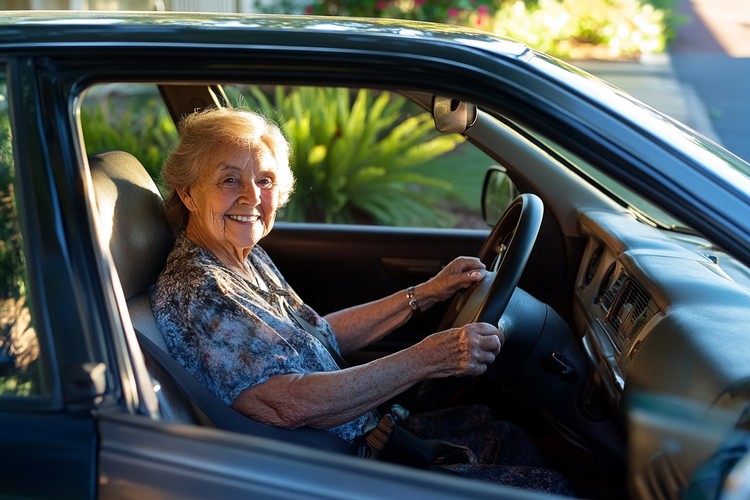Used Cars Guide for Senior Drivers: Features and Selection
Choosing the right used car as a senior driver involves careful consideration of comfort, safety, and accessibility features that may become increasingly important with age. While personal preferences vary, certain vehicle characteristics and shopping strategies can make the car-buying process more manageable and result in a vehicle that better serves seniors' specific needs. Understanding which vehicle types work well for older drivers, what features to prioritize, and how to effectively test potential purchases can lead to a more satisfying ownership experience.

What Types of Used Cars Work Best for Senior Drivers?
Different types of used cars suitable for senior drivers typically include sedans, crossover SUVs, and hatchbacks that prioritize ease of entry and exit. Mid-size sedans like the Toyota Camry, Honda Accord, and Nissan Altima offer comfortable seating positions and straightforward controls. These vehicles generally provide a good balance of ride comfort and maneuverability without being too large or complicated to operate.
Crossover SUVs such as the Honda CR-V, Toyota RAV4, and Subaru Forester have gained popularity among seniors due to their higher seating position, which makes getting in and out easier compared to lower vehicles. The elevated driving position also provides better visibility of the road ahead and surrounding traffic.
Compact hatchbacks and wagons can also serve seniors well, particularly models like the Honda Civic hatchback or Subaru Impreza wagon, which offer good visibility, manageable size for parking, and rear cargo access that doesn’t require bending as much as traditional trunks.
Which Features Should Seniors Prioritize in Used Vehicles?
Key features seniors should look for in a used car include automatic transmission, power steering, and seats that adjust easily for optimal comfort and visibility. Manual transmissions can become more challenging to operate with age, making automatic transmissions a practical choice for most senior drivers.
Visibility features deserve special attention, including large windows, adjustable mirrors, and good lighting systems. Backup cameras, while not standard on older used cars, can be extremely helpful and are sometimes available as aftermarket additions. Power windows and door locks reduce the physical effort required for daily operation.
Climate control systems should be straightforward to use, with clearly marked controls and effective heating and cooling. Air conditioning becomes particularly important for seniors who may be more sensitive to temperature extremes.
Safety features like anti-lock brakes (ABS), electronic stability control, and multiple airbags are increasingly standard even on older used vehicles and should be prioritized during the selection process.
How Can Seniors Effectively Test Drive Potential Purchases?
How to arrange test drives for senior-friendly vehicles involves scheduling adequate time and testing various driving scenarios that reflect real-world usage. Contact dealerships or private sellers in advance to arrange test drives during daylight hours when visibility is optimal and traffic conditions are manageable.
During test drives, seniors should evaluate how easily they can enter and exit the vehicle, adjust mirrors and seats, and reach important controls without straining. The steering should feel responsive but not overly sensitive, and braking should be smooth and predictable.
Test the vehicle in different driving conditions if possible, including parking lots for low-speed maneuvering, residential streets for normal driving, and brief highway segments if comfortable. Pay attention to how the vehicle handles, whether road noise is excessive, and if the ride quality feels comfortable.
Consider bringing a trusted friend or family member who can observe the test drive and provide additional perspective on how well the vehicle suits your needs.
| Vehicle Type | Typical Price Range | Key Benefits for Seniors |
|---|---|---|
| Mid-size Sedan (5-7 years old) | $12,000 - $20,000 | Comfortable seating, easy controls, good fuel economy |
| Compact Crossover SUV (5-7 years old) | $15,000 - $25,000 | Higher seating position, easier entry/exit, good visibility |
| Compact Hatchback (5-7 years old) | $10,000 - $18,000 | Manageable size, rear cargo accessibility, affordable maintenance |
Prices, rates, or cost estimates mentioned in this article are based on the latest available information but may change over time. Independent research is advised before making financial decisions.
What Should Seniors Consider During the Buying Process?
The vehicle buying process for seniors should include thorough inspection of maintenance records, verification of remaining warranty coverage, and consideration of ongoing costs like insurance, fuel, and repairs. Used cars with complete service histories generally indicate better care and can help predict future reliability.
Consider having a trusted mechanic inspect any serious purchase candidates, particularly if buying from private sellers. This inspection can reveal potential issues that might not be apparent during a test drive and help avoid costly surprises after purchase.
Insurance costs can vary significantly between vehicle types and models, so obtaining insurance quotes before finalizing a purchase helps ensure the total cost of ownership remains manageable.
How Important Is Ongoing Support and Service?
Local dealer service departments and independent mechanics who specialize in your chosen vehicle brand can provide valuable ongoing support. Some dealerships offer senior discounts on service, and building a relationship with a trusted service provider can simplify maintenance scheduling and ensure reliable vehicle care.
Consider the availability of parts and the general reputation for reliability when choosing between different used car options. Popular models from major manufacturers typically have better parts availability and more service options compared to less common vehicles.
Selecting the right used car as a senior driver ultimately depends on individual needs, budget, and driving patterns. By focusing on practical features, conducting thorough test drives, and considering long-term ownership costs, seniors can find reliable used vehicles that serve them well for years to come. The key lies in balancing comfort, safety, and affordability while ensuring the chosen vehicle supports continued independence and mobility.




